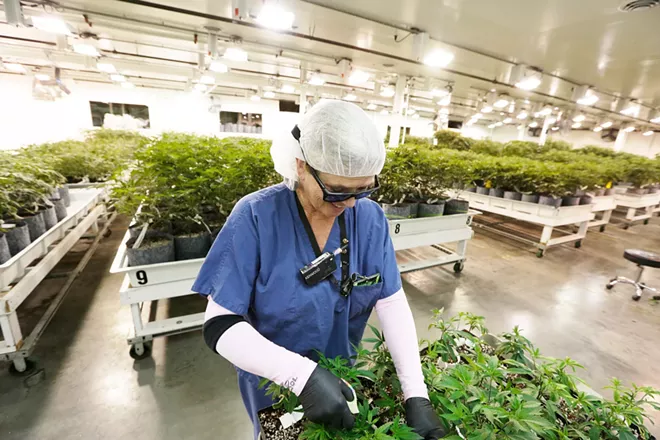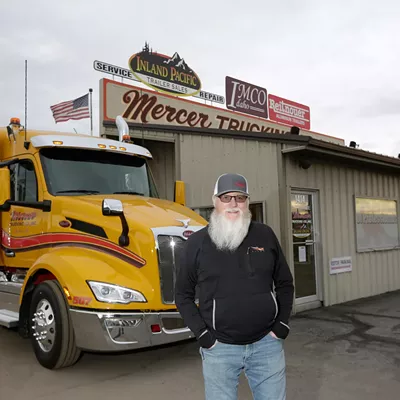
Last week, cannabis news and culture website Leafly put out its annual cannabis industry jobs report. The report found that as of January the cannabis industry in the United States supports 428,059 full-time-equivalent jobs. That's an increase of 107,059 jobs over the previous year. There are more people working in the cannabis industry than there are working as firefighters or insurance agents; there are three times as many cannabis workers than dentists.
The Leafly report looked only at cannabis workers, not those working in the hemp industry, which is considered to be distinct due to a technicality in how the federal government regulates the plant.
Washington ranks ninth among states in cannabis employment, with 22,516 people working full-time-equivalent jobs in the cannabis industry. The report found that while the industry continues to grow at an increasing pace nationally — 33 percent year-over-year and above 27 percent for the fifth straight year — states like Washington with relatively mature markets are showing more moderate growth. Washington saw just 3 percent growth from a year ago.
Cannabis has also become a broad and diversified industry, with jobs ranging from plant-touching positions like growers and processors to more ancillary positions found in other industries like accounting and human resources.
That diversity of positions is reflected in Washington's current cannabis industry job market. Job hunting service Indeed lists 475 positions currently open in the cannabis industry within the state. Compensation ranges from minimum wage positions to six-figure salaries.
Looking ahead, Leafly expects growth patterns within the cannabis industry to continue along similar lines. Much of the growth over recent years has been spurred by the steady stream of states that have been moving into the legal market. Eight states legalized either medical or recreational cannabis in 2021.
For states like Washington, where legal markets have existed for years and are largely stable, growth will be dictated by regulations rather than legalization. For example, the state currently has a cap on the number of licenses available for retail stores, which is a limiting factor for growth within the industry.
Even with mature markets seeing their growth rates start to level out, Leafly expects growth to continue to increase nationally through 2025. The report estimates that a fully mature national cannabis industry could support between 1.5 million and 1.75 million full-time-equivalent jobs, making cannabis one of the larger industries by employment in the country. ♦




















